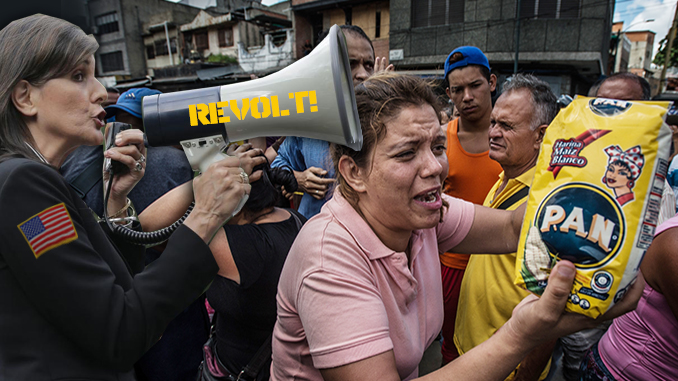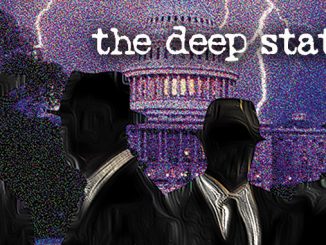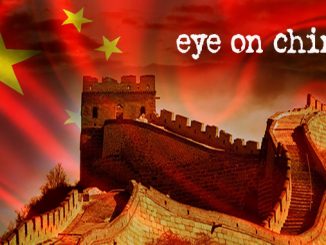
Russia and China have a huge financial stake in Venezuela because both sell the country weapons, meaning U.S. threats of supporting a military coup in Venezuela could create a Latin American Cold War.
By Richard Walker
Should President Donald Trump and prominent members of Congress continue to advocate for a military coup in Venezuela, it could see a return to a Cold War in Latin America, a region in which countries have always shared divided loyalties to East and West.
According to foreign policy expert Brian Fonseca, should the U.S. continue to push for overthrowing the Venezuelan government, the West could see a bigger Chinese and Russian footprint in Latin America. These two superpowers have close ties to the Venezuelan military and sell it weapons. They would be thrilled if Venezuela’s relations with Washington reached a point of no return because Moscow and Beijing would pursue an opportunity to purchase majority stakes in Venezuela’s oil reserves that are among the world’s largest.
Venezuela also has large deposits of natural resources that China would be keen to develop, in keeping with China’s growing economic role in the world. China has been busy for the past two decades establishing relations with nations across Latin America and Africa, especially those that have massive energy and fossil fuel reserves. A classic example is that, in 2015, in the out-of-the-way country Mozambique, China began cutting large tracts of forest for the timber it desperately needs for its ever-expanding infrastructure. When it discovered that the same area held large deposits of gemstones, it bought mining rights and began exploiting them, too.
Fonseca has warned Washington figures that flirting with the prospect of backing the overthrow of the government of Nicolas Maduro in Venezuela is playing with fire, endangering America’s foreign policy in its own backyard. It could even result in a major national security blunder.
Big oil companies Chevron and Halliburton that have stakes in Venezuela’s oil industry have privately appealed to the White House to avoid plunging Venezuela into total chaos by pursuing tougher financial sanctions against the government. They have also cautioned that intervention in support of a military coup could be disastrous for Washington’s relations throughout the region.
Those warnings have not deterred Trump from floating the possibility of supporting a coup by the Venezuelan military. He received backing for his views from U.S. Ambassador to the UN Nikki Haley and Sen. Marco Rubio (R-Fla.).
There is also evidence that some former Venezuelan military figures have met members of the Trump administration.
The promotion of regime change in Congress and the White House is a dangerous trend that ignores the failed history of U.S.-led coups. After 1947, with the emergence of the CIA, Washington decided it now had the ideal tool to change regimes it did not like or that American corporations felt threatened their energy domination. The first coup the CIA launched was in Iran in 1953 when U.S. agents overthrew a democratically elected government because Iran was seeking to stop exploitation by foreign oil corporations, mostly British, by nationalizing Iran’s oil for the benefit of its people. Other coups followed in the Congo and South Vietnam, but Latin America became the major target of nine coup-led interventions by the CIA. The Agency used tactics that became all too familiar of arming and training insurgents. It encouraged assassinations, bombings, kidnapping, and the secret torture and elimination of perceived enemies.
George Bush and Dick Cheney meddled in Venezuela and in other Latin American nations, and so, too, did Barack Obama who pursued what became known as the soft power strategy. Obama advocated using less CIA paramilitary input in favor of exploiting and financing opposition groups by funneling money to them, using Washington-run aid organizations. Bribes were also paid to political figures and disgruntled military officers. At the same time, fake stories were fed into the media of the target nation.
It is a fact that Venezuela, like many Latin American nations, has existed for decades with serious levels of corruption. But of much more significance is the reality that its economy has relied for too long on oil exports. Knowing this, in 2014, the Saudis, under pressure from Israel and Washington, flooded the international oil markets with cheap oil, crushing the price of oil to the detriment of the Venezuelan economy. The effects were devastating and long term. Israel, Saudi Arabia, and Washington saw it as punishment for Venezuela’s closeness to Iran and its attacks on Israel’s treatment of the Palestinians. It may well be that some oil corporations were also pushing for the Saudi move, hoping it would lead to Venezuela’s collapse, giving them control of its energy resources.
Venezuela is now collapsing financially, and U.S. sanctions could push it over the edge into the arms of Beijing and Moscow. It is generally not reported that 2.3 million Venezuelans have fled the country in the past three years.
Too many figures in Congress promote regime change, ignorant of the terrible effects of failed CIA-led coups in the past. Even those regimes in Latin America that do not support the Venezuelan leadership have raw memories of past U.S. interventions in countries like Chile and the failed 2002 CIA-led coup against Hugo Chavez in Venezuela. In that coup tens of millions of dollars were secretly funneled to opposition groups and disaffected members of the country’s military. That is probably what has been happening again in the past couple of years.
Richard Walker is the pen name of a former N.Y. news producer.
RELATED, FROM RON PAUL . . .
D.C.’s Hypocritical Attack on Maduro
If our leaders really cared about the people of Venezuela, they would lift the sanctions.
By Dr. Ron Paul
Last week we witnessed the horrible spectacle of Nikki Haley, President Donald Trump’s ambassador to the United Nations, joining a protest outside the UN building and calling for the people of Venezuela to overthrow their government.
“We are going to fight for Venezuela,” she shouted through a megaphone. “We are going to continue doing it until [Venezuelan President Nicolas] Maduro is gone.”
This is the neocon mindset: that somehow the U.S. has the authority to tell the rest of the world how to live and who may hold political power regardless of elections.
After more than a year of Washington being crippled by evidence-free claims that the Russians have influenced our elections, we have a senior U.S. administration official openly calling for the overturning of elections overseas.
Imagine if President Vladimir Putin’s national security advisor had grabbed a megaphone in New York and called for the people of the United States to overthrow their government by force.
At the UN, Maduro accused the Western media of hyping up the crisis in his country to push the cause for another “humanitarian intervention.”
Some may laugh at such a claim, but recent history shows that interventionists lie to push regime change, and the media goes right along with the lies.
Remember the lies about Libyan leader Muammar Qaddafi giving Viagra to his troops to help them rape their way through Libya? Remember the “babies thrown from incubators” and “mobile chemical labs” in Iraq? Judging from past practice, there is probably some truth in Maduro’s claims.
We know socialism does not work. It is an economic system based on the use of force rather than economic freedom of choice. But while many Americans seem to be in a panic over the failures of socialism in Venezuela, they don’t seem all that concerned that right here at home Trump just signed a massive $1.3 trillion spending bill that delivers socialism on a scale that Venezuelans couldn’t even imagine. In fact, this one spending bill is three times Venezuela’s entire gross domestic product.
Did I miss all the Americans protesting this warfare-welfare state socialism?
Why all the neocon and humanitarian-interventionist “concern” for the people of Venezuela? One clue might be the fact that Venezuela happens to be sitting on the world’s largest oil reserves. More even than Saudi Arabia. There are plenty of countries pursuing dumb economic policies that result in plenty of suffering, but Nikki and the neocons are nowhere to be found when it comes to “concern” for these people. Might it be a bit about this oil?
Don’t believe this feigned interest in helping the Venezuelan people. If Washington really cared about Venezuelans they would not be plotting regime change for the country, considering that each such “liberation” elsewhere has ended with the people being worse off than before.
No, if Washington—and the rest of us—really cared about Venezuelans we would demand an end to the terrible U.S. economic sanctions on the country—which only make a bad situation worse—and would push for far more engagement and trade.
And maybe we’d even lead by example, by opposing the real, existing socialism here at home before seeking socialist monsters to slay abroad.
Ron Paul, a former U.S. representative from Texas and medical doctor, continues to write his weekly column for the Ron Paul Institute for Peace and Prosperity, online at www.ronpaulinstitute.org.





